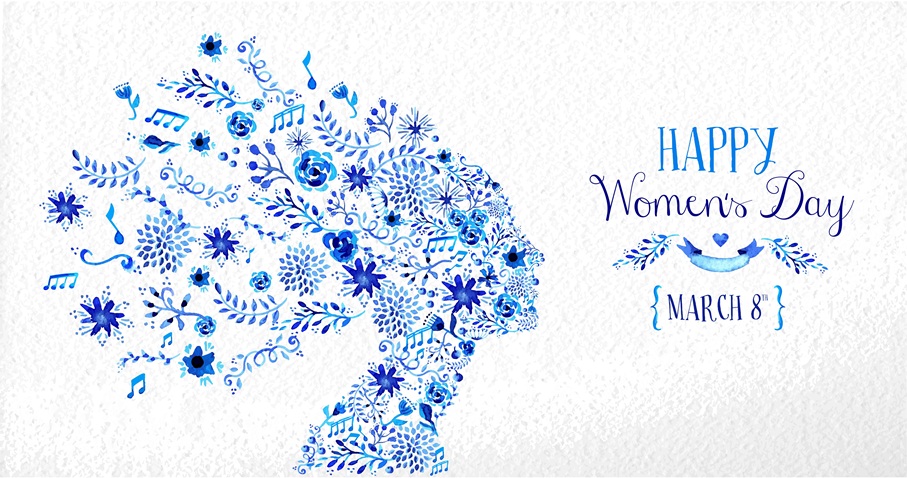Written by Clare Ferguson
International Women’s Day is celebrated on 8 March so naturally, progress on equality between women and men in the EU comes first on Parliament’s agenda for the next plenary session, taking place in Strasbourg from 9 to 12 March. Parliament has always taken a proactive stance on advancing gender equality, even before setting up the first Ad Hoc Committee on Women’s Rights in 1979. With directives on maternity leave and gender balance on company boards both awaiting consensus in the Council, we look at progress made in advancing equality between women and men in the EU.
Later on Monday, the debate turns to EU Competition Policy, followed by oral questions on endocrine disrupting chemicals and Russian restrictions on road transport, which brings us neatly to the Leichtfried report on the dimensions and weights of vehicles driving on EU roads, first up on Tuesday’s agenda. Some countries allow longer and heavier vehicles (LHVs). The weights and dimensions of these so-called mega trucks and buses impact on the fabric of our roads, have implications for road safety, and for the environment (5% of EU greenhouse gas emissions comes from trucks).

The rest of Tuesday morning is divided between the EU’s place in the world, and Commission President Juncker’s number one priority: to boost jobs, growth and investment in the EU. As plans like these can be costly, a proposal for European Long-term Investment Funds will come before the Parliament. These funds aim to increase the capital available for financing EU innovation and competitiveness. A vote on Tuesday will show whether MEPs are satisfied that the funds will be sufficiently transparent, and contribute to actually producing goods and services in the EU. A vote will also take place on applications for financial support for workers who have lost their jobs due to restructuring as a result of changes in the global marketplace. The six requests for European Globalisation Adjustment Fund assistance before this month’s plenary come from Germany, Poland and Belgium.
A little closer to our own, personal, finances, is the vote on interchange fees for card-based payment transactions, also scheduled for Tuesday. As the EU is currently reviewing the framework for payment services, Parliament has the operations and charges of credit and debit companies in the EU in its sights. Still on financial matters, later in the day, a vote will be held on the 2013 report on protecting the EU’s financial interests and the fight against fraud.
Following an address to the Parliament by King Abdullah II of Jordan, focus moves to countries outside the EU. A statement will be heard on the outcome of the recent high-level meeting on the fight against Ebola, and the Parliament will scrutinise the Commission progress report on accession negotiations with Montenegro, a country once considered a ‘poster child’ among Balkan EU candidate countries, but now possibly slowing down in its efforts to join the EU. Similarly, Members will also consider the report on the Former Yugoslav Republic of Macedonia‘s bid for accession, where Parliament would like to see the start of negotiations, currently blocked over the name issue. In Serbia‘s case, the Parliament has some issues on progress to date. Finally, Parliament will urge Kosovo to strengthen its rule of law, re-energise its reforms and implement the policies agreed.
Returning to the subject of growth on Wednesday morning, Parliament will debate the European Semester: Annual Growth Survey 2015. Parliament has been positive about the Commission’s approach to streamlining the European Semester, and is calling for active support from the Member States for the investment plan. Will we see more lively debate, along the lines of Commissioner Dombrovskis’s appearance in December’s plenary?
Coming back to equality then, that of all women and all men, Wednesday’s agenda also features the annual report from the High Representative of the European Union for Foreign Affairs and Security Policy to the European Parliament. Parliament will also discuss its own annual report on human rights and democracy in the world, and the EU’s policy on the issue, before going on to discuss Parliament’s position in respect of the ongoing 28th session of the UN Human Rights Council.
Finally, Thursday’s agenda will, as usual, continue the discussion on specific human rights issues, with Parliament also due to vote on resolutions concerning the murder of the Russian opposition leader Boris Nemtsov and the state of democracy in Russia, and EU cooperation with the League of Arab States to counter terrorism.
| A list of all material prepared for this Plenary Session: |
| 2013 report on protection of the European Union’s financial interests – fight against fraud : DE – EN – ES – FR – IT – PL |
| European Globalisation Adjustment Fund : DE – EN – ES – FR – IT – PL |
| European long-term investment funds : DE – EN – ES – FR – IT – PL |
| Weights and dimensions of trucks and buses : DE – EN – ES – FR – IT – PL |
| Advancing gender equality in the EU : DE – EN – ES – FR – IT – PL |
| European Semester: Annual Growth Survey 2015 : DE – EN – ES – FR – IT – PL |
| Serbia’s EU accession: need for greater efforts : EN – |
| Montenegro’s EU accession: losing momentum? : EN – |
| Former Yugoslav Republic of Macedonia: impasse? : EN – |
| Kosovo’s EU integration: progress or stagnation? : EN – |
| The United Nations Human Rights Council (UNHRC) : EN – |
| Annual report on human rights and democracy in the world, 2013 : EN – |








Hahahahaha – can’t stop laughing… and crying… where do YOU live? for sure NOT in the EU which is anyway not at this planet… E Q U A L I T Y F O R A L L Hahhahahahahahahaha